Dance drama, drawing inspiration from martial arts grandmaster Yip Man, has won worldwide acclaim in its efforts to promote Lingnan culture and convey a sense of justice and responsibility in society. Fang Xue reports from Hong Kong.
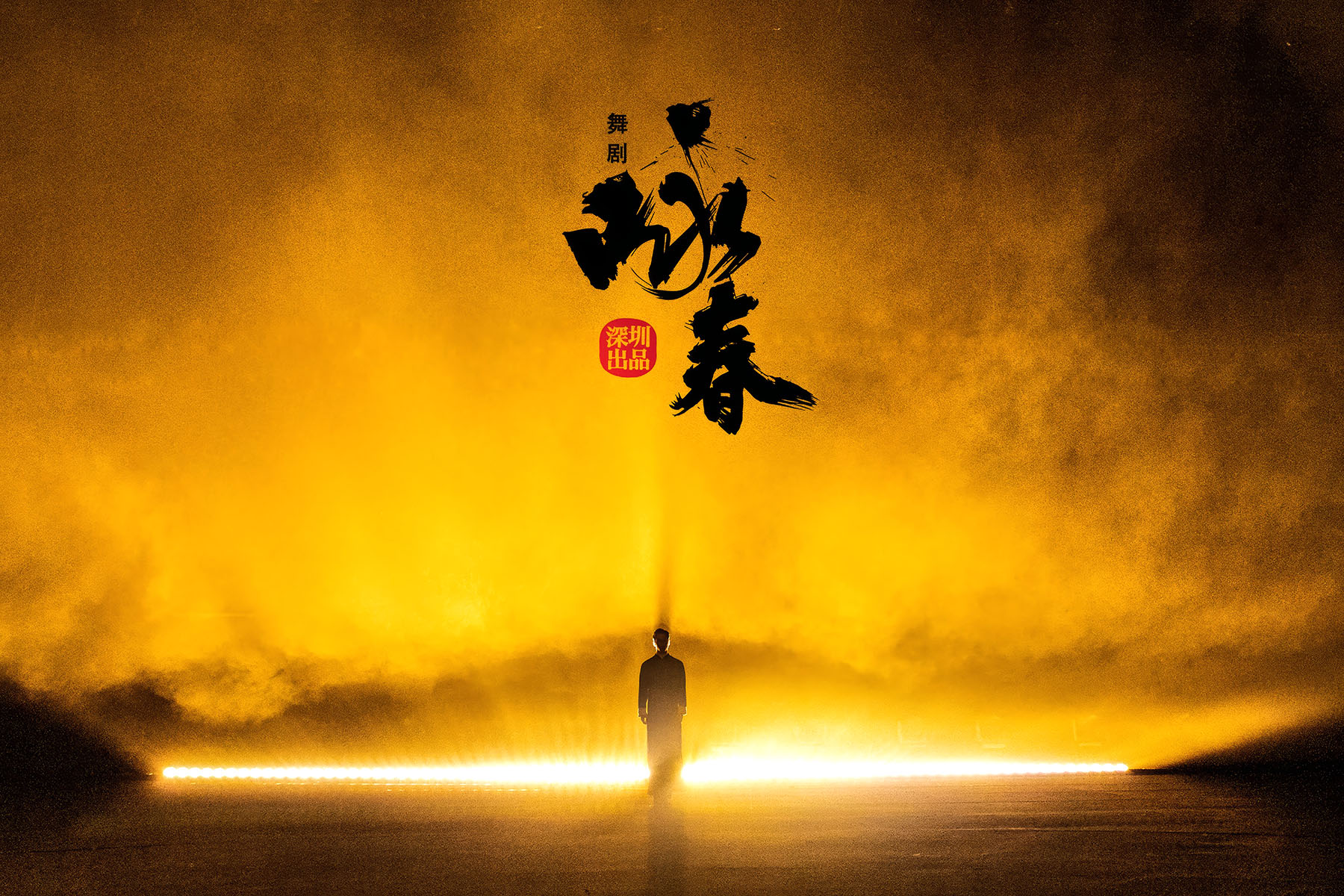
While conceiving the script of Wing Chun — a dance drama that became a hit in China and overseas — stage play director Zhou Liya encountered a century-old banyan tree on Chung Ying Street. This 250-meter-long restricted shopping area in Sha Tau Kok, Shenzhen, lies between the boundary of the Chinese mainland and Hong Kong’s North District.
The tree has its roots deeply embedded in Shenzhen soil, with its lush branches jutting out into the special administrative region. It reminded Zhou of her work’s protagonist, martial arts master Yip Man (1893-1972), also known as Ip Man, who hailed from Foshan city before settling in Hong Kong, where he took Wing Chun — a form of kung fu characterized by close unarmed combat and rapid punches — to the world stage.
READ MORE: New dance drama will fight for success
Wing Chun marks the continued inheritance and innovative development of Lingnan culture — a shared bond of the Guangdong-Hong Kong-Macao Greater Bay Area — says Zhou.
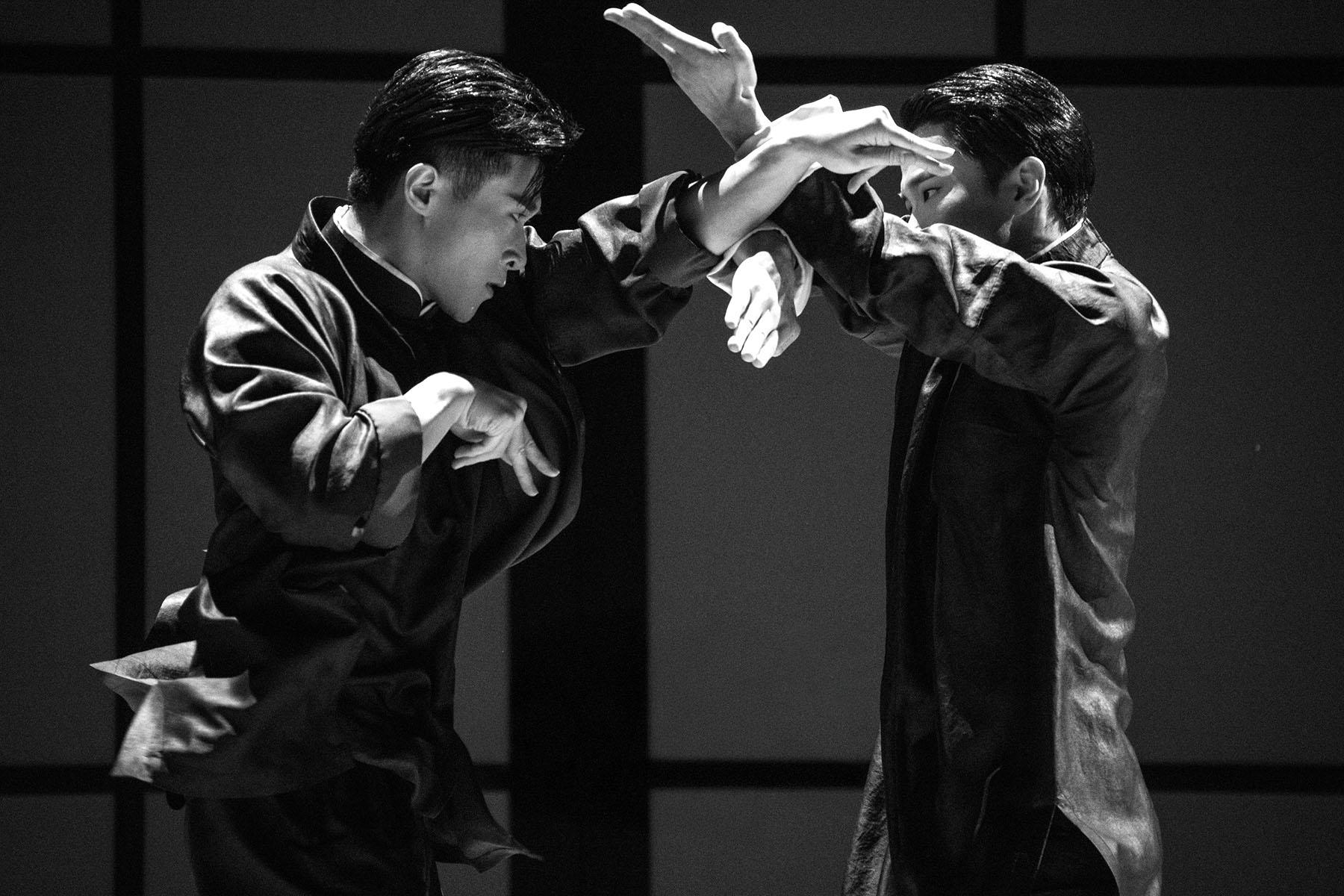
Creative fusion
Codirected by Zhou and Han Zhen, the drama, performed by the Shenzhen Opera and Dance Theatre, debuted in Shenzhen in 2022. Since then, it had been staged in dozens of mainland cities at the end of last year before going to the United Kingdom and France. The play was performed twice in Hong Kong, and was the grand finale of the 4th Guangdong-Hong Kong-Macao Greater Bay Area Cultural and Art Festival in November.
Inspired by Yip’s story, the production adopts dual narratives that intertwine Yip Man’s journey to promote martial arts in Hong Kong with a modern film crew in Shenzhen pursuing their dreams while shooting a movie called Wing Chun.
The performance integrates the essence of Wing Chun, tai chi and Baguazhang, (eight trigram palm), and other martial arts styles, merging classical and modern dance techniques.
Through the interweaving forms of classic and contemporary artistic presentation, Zhou says the drama projects China’s traditional value of “using martial arts to aid the weak and uphold kindness” that can inspire and encourage today’s society.
The directors credited the influence of Hong Kong culture for crafting Yip’s work and Wing Chun. Belonging to the 1980s generation, both grew up as Chinese cinema underwent reforms and thrived, with the emergence of scores of coproductions between the mainland and Hong Kong.
In the 1980s and 1990s, filmmakers from both sides jointly produced a slew of popular martial arts titles adapted from the stories of real or fictional kung fu masters, such as Wong Fei-hung and Fong Sai-yuk. Their success sparked a craze for heroism and kung fu in society, leaving a profound impression on the two directors’ childhood and teenage years.
They see heroes as possessing exceptional martial arts skills, while also conveying a sense of justice and social responsibility. More importantly, such movies show that every person can become a hero.
The biographic film series Ip Man, which released four titles from 2008 through 2019, has inspired the directors’ enthusiasm for kung fu productions, prompting them to create the dance drama, Wing Chun.
Han says the public’s preference for martial arts has returned in the past few years. She said she believes the Ip Man series has taken Wing Chun to a broader audience. The style emphasizes restraint and tranquility while focusing on techniques, internal strength and wisdom, which is visually attracting and aligns more closely with modern aesthetics.
However, both directors believe Wing Chun’s cultural essence and spiritual value have yet to be fully revealed through films, and that different artistic mediums, including dance drama, can present the intangible heritage’s charm in new ways.
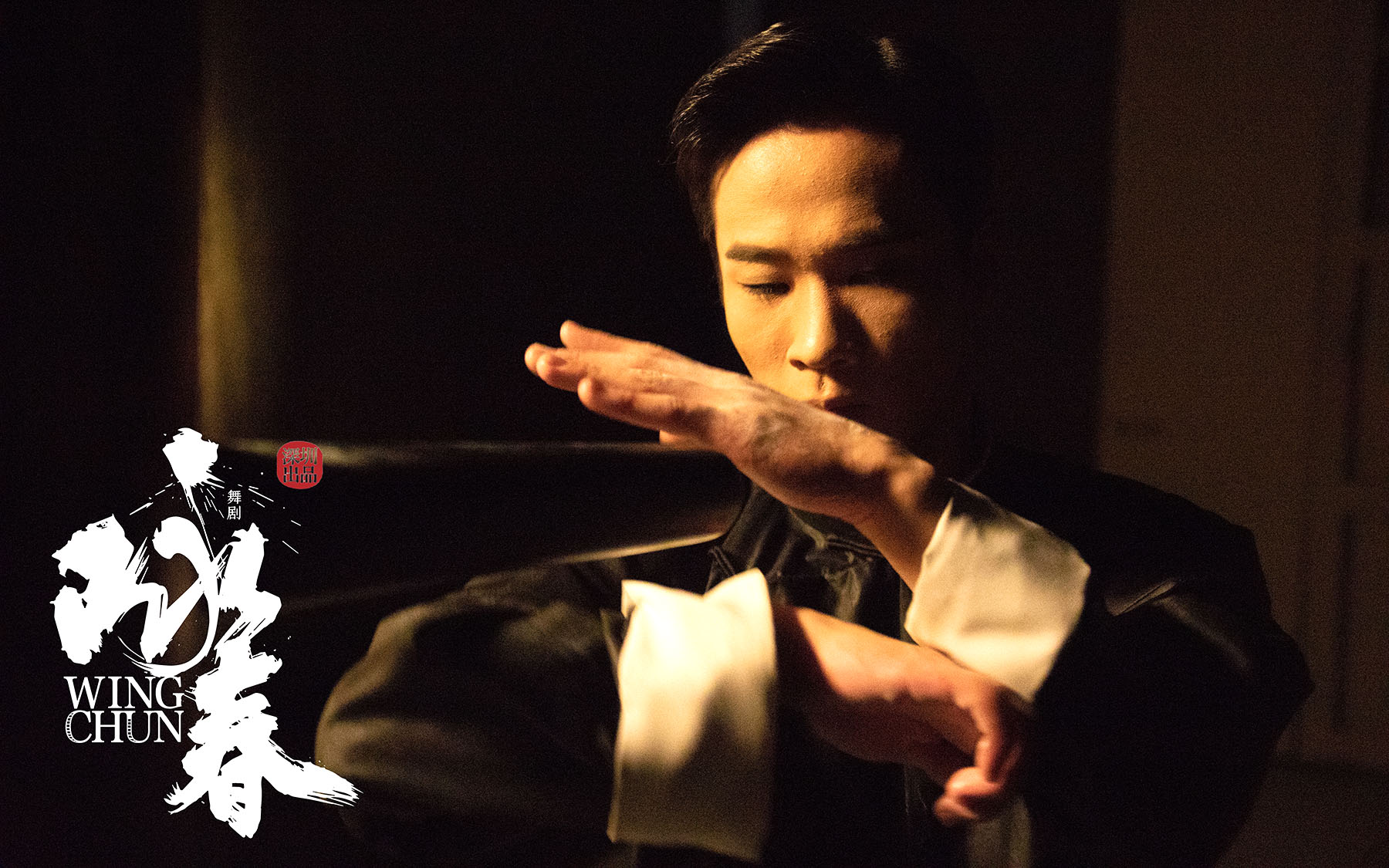
Global success
Replacing lengthy dialogues with choreography, emotional expressions and face-to-face performances, the drama overcame language barriers and fostered deep spiritual resonance among people of different cultures when it went global last year.
Tour manager Wang Ali, who was directly involved in every step of Wing Chun’s tour, says the international feedback has easily exceeded expectations. She recalls that when the performers arrived in London in August, only 60 to 70 percent of the seats sold. But, following a successful first performance, the box office steadily improved.
Wing Chun was performed 12 times over nine days at Sadler’s Wells Theatre in London, a renowned performance venue for dance, and completed four shows in three days at Palais des Congres in Paris — an icon of French culture and art — drawing an audience of over 100,000.
According to Wang, the overseas performances not only attracted ethnic Chinese, but also garnered immense affection and recognition from foreign audiences who showed great enthusiasm for the drama, with some having watched it multiple times and were moved to tears.
The tour’s success has fueled the team’s determination. The drama was performed in Moscow and Saint Petersburg, Russia, from April 25 to May 1, marking the beginning of this year’s world tour, and it received a warm reception from the Russian audience. Wang says leading theaters in various countries, including Canada and the United States, have approached them to perform there, adding she believes that deeper emotional links could be forged with local audiences.
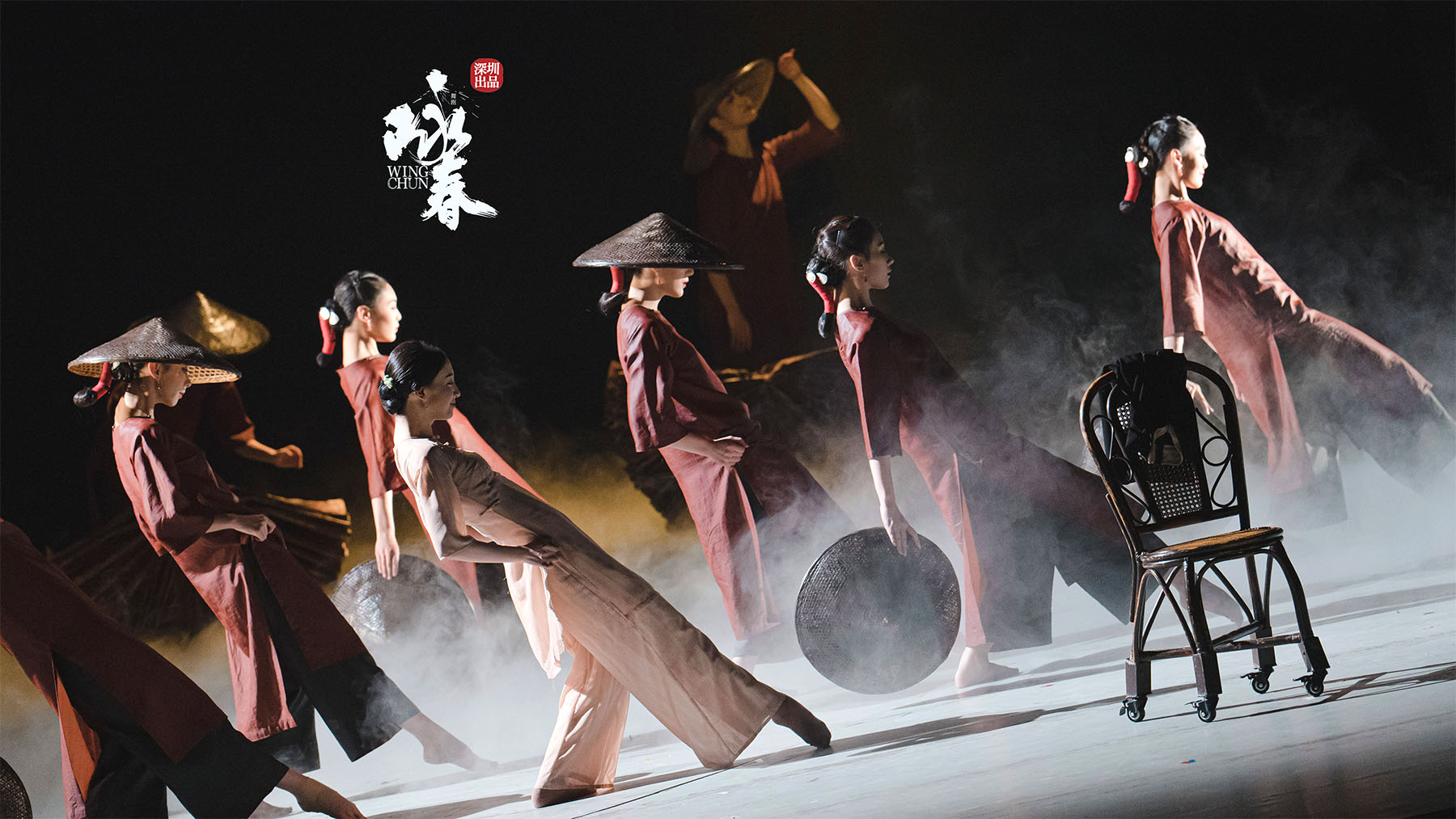
Spiritual journey
Young dancer Chang Hongji, who plays Yip in the drama, says he finds it challenging to recreate the legendary master’s charisma on stage. When he performed at the Hong Kong Academy for Performing Arts early last year at the drama’s debut in the city, he was incredibly nervous.
Hong Kong means a lot to Yip. It’s a city that has been his home for two decades and where he had taught and promoted Wing Chun, says Chang, adding he believes Hong Kong audiences have a more direct and profound understanding of the late kung fu master and his spirit.
Chang says he has turned the pressure into a powerful spiritual connection between Yip and him when he stood on the stage. “I feel the master was particularly close to me as if he were by my side and had accompanied me through the entire performance.”
After the first show ended, the enthusiastic applause and heartfelt feedback from the Hong Kong audience moved Chang deeply.
Chang says he has felt a special resonance and integration with Yip’s character since then, gaining greater confidence in playing the role and entering his “immersive acting” moment. The spiritual bond he felt in Hong Kong, which he had never experienced before, has lifted his spirits in more than 200 performances, elevating him as a performer.
Chang says he believes Yip’s spirit isn’t about showing off skills or personal heroism, but about cultivating one’s mind by practicing martial arts. Practitioners must overcome a sense of rivalry and demonstrate restraint and humility, protecting themselves and those around them. This also exemplifies Yip’s stature as a grandmaster.
He says playing Yip in the drama has shaped him philosophically, gradually detaching him from a restless mindset, making him reflect and listen to his inner voice before acting, and approaching people with greater calmness and restraint.
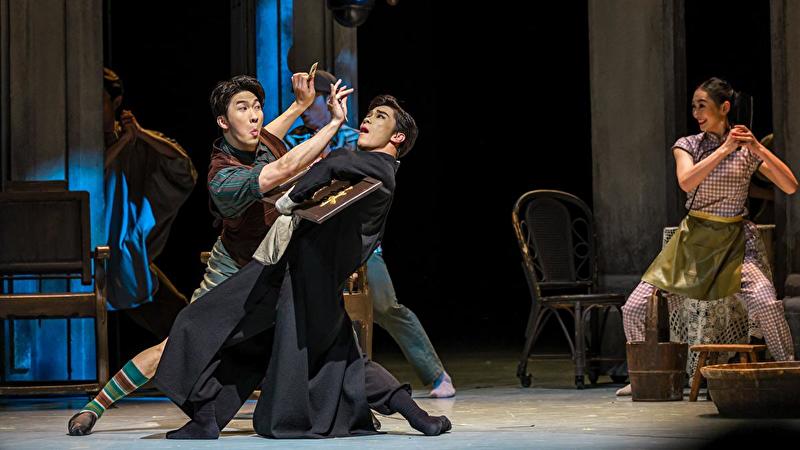
Dong Chonghua, an intangible cultural heritage inheritor of Yip Man’s lineage branch of Wing Chun, and the martial arts director of the dance drama, shares a similar understanding of the martial art’s philosophy with Chang.
Dong has been studying Wing Chun with Yip Chun, son of Yip Man, for more than a decade. He was deeply impressed by Yip Chun’s optimistic, serene and focused personality which, he believes, were shaped by the core spirit of Wing Chun — “combining toughness with softness”.
Why is Wing Chun so widely recognized and appreciated globally? Dong explains that the martial art’s movements are stylish and agile, with practical combat applications and a design that emphasizes user-friendliness. It’s easy for beginners, but offers depth for advanced learners. Thus, apprentices span all age groups, making it a martial art in which ordinary people can achieve a high level of proficiency.
The gist of Wing Chun is also believed to have inspired the concept of Jeet Kune Do, a hybrid martial arts style conceived by martial arts superstar Bruce Lee. Dong emphasizes that regardless of how Wing Chun has evolved, its fundamental principles, as well as the chivalrous values and patriotism rooted in traditional Chinese culture, must never be forgotten.
It’s equally important for Wing Chun to keep pace with the times and constantly innovate. Collaboration with the dance drama is a successful attempt to expand the style’s international influence, and Dong hopes Wing Chun can be a part of more international cultural exchange activities.
Dong is also exploring new ways to promote Wing Chun culture among young people, such as through short videos and street dancing.
Decoding the global success of Wing Chun, Han says cultural works can genuinely seek a global perspective by staying deeply rooted in local culture. The local elements — the cultural roots of the region where artists reside and the creative foundation it provides — are always full of charm. Such a philosophy is reflected in Wing Chun itself.
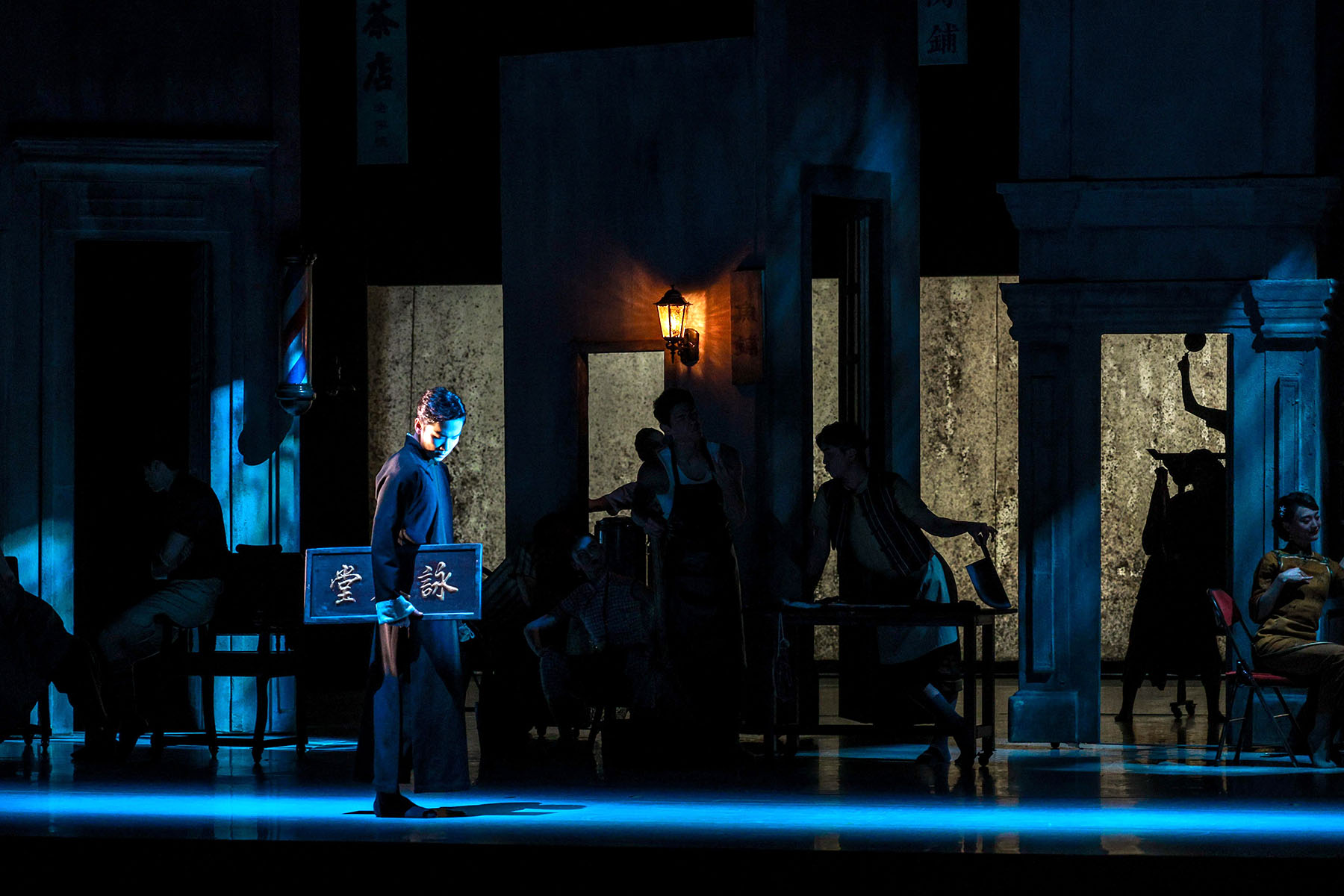
Preserving Lingnan heritage
A special segment in the drama that moves the audience is that all actors recite the ancestral teachings of Wing Chun in Cantonese — a Chinese dialect widely spoken in Guangdong province, Hong Kong and Macao, as well as among overseas Chinese communities.
This part reflects a long-standing tradition in the Lingnan martial arts circle — passing down creeds orally.
Although dialogue is generally rare in dance dramas, this segment, in a resounding and synchronized tone, has brought tears to many people in the Greater Bay Area and among the overseas Chinese community. “The familiarity of language preserved in memory can strike directly at one’s heart,” says Han.
Preserving and promoting Lingnan culture better, as represented by Cantonese opera, dragon boat races, martial arts and lion dances, is a major cultural mission listed in the Outline Development Plan for the Guangdong-Hong Kong-Macao Greater Bay Area.
Hong Kong’s cultural authorities and legislators are committed to the preservation and inheritance of Lingnan culture that has flourished in the city.
Eve Tam Mei-yee, deputy director of culture at the Leisure and Cultural Services Department, says they’ve been encouraging artists to explore local projects featuring Lingnan cultural characteristics, while actively supporting them in organizing related performing arts programs and exhibitions locally, on the mainland and overseas.
ALSO READ: Bruce Lee's legacy packs powerful punch
The department is also working closely with arts institutions and artists from other cities in the Greater Bay Area to cocreate new productions centered on Lingnan culture. Since last year, it has organized the Chinese Cultural Festival featuring Lingnan cultural performances and intangible cultural heritage exhibitions.
The HKSAR government is dedicated to spreading Lingnan culture, a shared treasure of the Greater Bay Area, through platforms like the Guangdong-Hong Kong-Macao Greater Bay Area Culture and Arts Festival and Hong Kong Week held on the mainland and abroad, as well as cultural events organized by Hong Kong’s overseas Economic and Trade Offices, to enhance the city’s role as a cultural and artistic exchange hub between China and the world.
Legislator Johnny Ng Kit-chong, a veteran investor in the cultural and film sectors, says the main challenge Hong Kong faces is the dearth of talent in the cultural and creative fields. He notes that after the “golden era” of Hong Kong’s cultural and film industries in the 1980s and 1990s, there has been a significant gap in emerging talent.


